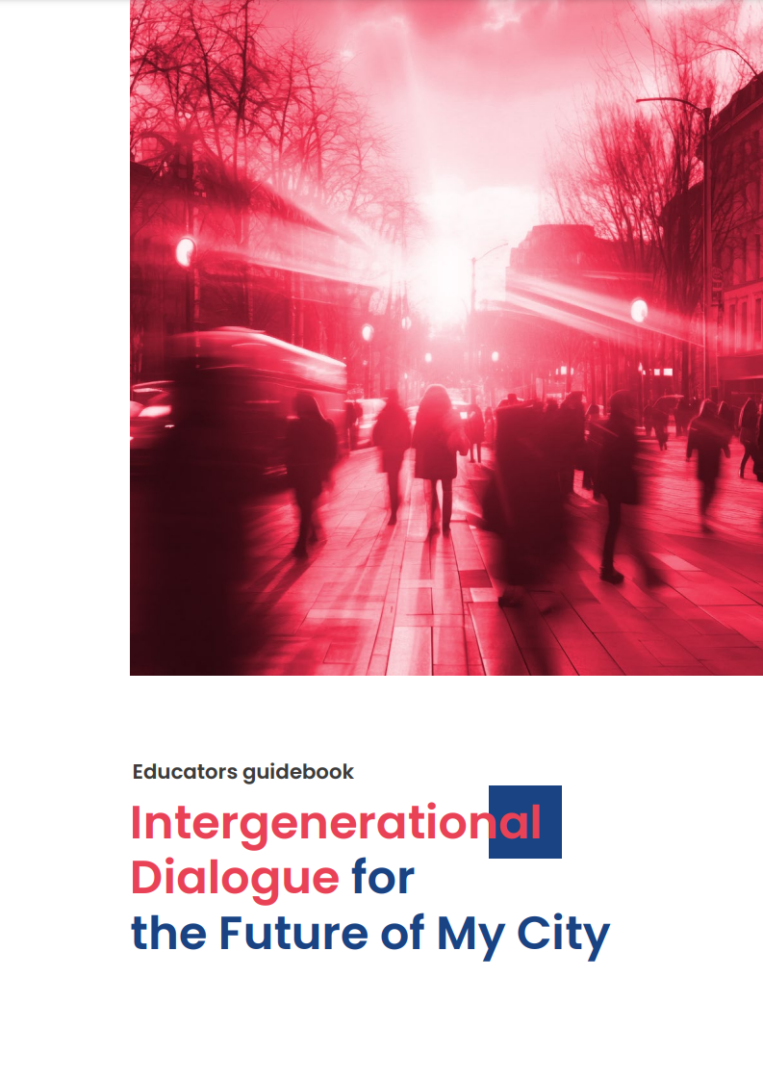 Homepage CASE
Homepage CASE
Selected values

Intergenerational Dialogue for the Future of My City
-

Agnieszka Kulesa
Specialist in Social Sciences
Agnieszka Kulesa has been working at CASE since 2018. She specialises in the labour market, international labour migration, and migration policies within and outside the European Union.
Articles from this author:
-
Exploring the Entrepreneurial Potential of Belarusian Migrants in the EU
This Working Paper aims to deepen the understanding of Belarusian migration to the EU, with a particular focus on entrepreneurship among Belarusian migrants.
- Poland’s Migration Strategy for 2025-2030 – Expert Commentary
-
177th mBank-CASE Seminar Proceedings: The Just Energy Transition from the Perspective of Cities and Regions – the experience of Poland and other European Union countries
Climate change is a global problem - it requires the cooperation of countries all over the world and the implementation of sustainable development concepts. In mBank-CASE Seminar Proceedings no. 177 authors describe the ways selected Polish regions tackled the challenges of transition towards sustainable energy. Agnieszka Kulesa, Vice-President of CASE Management Board, focuses on Lusatia, Upper Nitra and Greater Poland and the way these regions handled the transition, highlighting the role of lignite mining. Aleksandra Gawlikowska-Fyk, Energy Forum expert and director of the Electricity comments on Agnieszka’s findings. Next chapters focus on the way two cities in Poland managed to make their way through an energy transition: Konin - described by Piotr Korytkowski, Its President, and Wałbrzych - by Andrzej Kosiór, Head of the Strategic Management Office. Table of contents Ewa Balcerowicz - Introduction p. 5-7 Agnieszka Kulesa - The just energy transition in Lusatia (Germany), Upper Nitra (Slovakia) and Greater Poland (Poland) – conclusions and recommendations p. 8-23 Aleksandra Gawlikowska-Fyk - Just Energy Transition in Poland: where we stand p. 24-27 Piotr Korytkowski - Energy transition of Konin and the Konin region p. 25-34 Andrzej Kosiór - Lower Silesia’s energy transition – the experience of Wałbrzych p. 34-42
-
Exploring the Entrepreneurial Potential of Belarusian Migrants in the EU
-

Martyna Gliniecka
Martyna Gliniecka holds a PhD in Linguistics, specialising in cross-cultural communication, from the University of Wroclaw. She is awaiting the finalisation of her second PhD in the Culture and Society field from Western Sydney University, Australia. She previously led and participated in research projects in the Young and Resilient Research Centre at Western Sydney University, aiming to better young people’s lives and their resilience in the domains of technology and health. She specialises in qualitative research methods, participatory methodologies, and digital research (e.g., digital ethnography). She is especially interested in online communities and their role in the growing domain of youth digital health.
Articles from this author:
-
Blueprint and Methodology for Innovative Governance
The publication is a key deliverable within the BioBeo project, funded under the Horizon Europe program. It provides a structured approach to integrating bioeconomy education into school curricula across different institutional and social environments. The report examines the actors involved in curriculum decision-making, from policymakers and school administrators to parents, students, and businesses. It categorizes existing procedures for introducing new content into schools, whether initiated by teachers, school heads, or government authorities. Key barriers—legal, organizational, and socio-cultural—are identified, along with strategies to overcome them. A central theme is the importance of inclusive governance in education, advocating for participatory decision-making that involves various stakeholders. Recommendations highlight the need for flexibility in curriculum design, adequate funding, professional support for teachers, and depoliticization of educational content. The report concludes by situating these findings within the broader BioBeo curriculum framework, reinforcing the role of education in fostering a sustainable and circular bioeconomy.
- The EU regional policy and regional policy challenges in Czech Republic, Hungary, Poland, Slovak Republic, Montenegro and Serbia
-
Rural areas and the geography of discontent
This study applies a rural-urban lens to the outcomes of recent national and subnational elections of European Union (EU) Member States, with the aim of analysing Eurosceptic (anti-EU values) voting patterns and identifying possible explanations for voter discontent in rural areas. Findings show high Eurosceptic voting in many rural areas across the EU. At … Continued
-
Blueprint and Methodology for Innovative Governance
-

Zuzanna Stańska
Specialist in Social Sciences
Related publications
Thanks for joining us!
You're now part of a community that values [your newsletter's focus]. Get ready to stay informed, inspired, and engaged with our carefully curated content.
